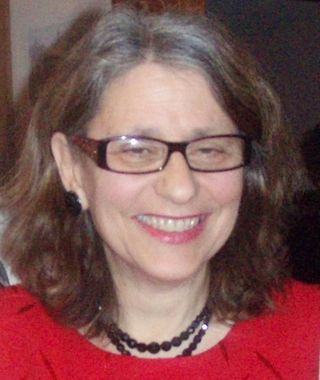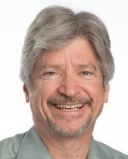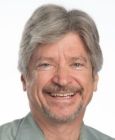Bias
The Past, Present, and Future of Psychology
These are the reflections of a new department chair in a new year.
Posted October 17, 2018
Guest Blog Entry by Lorraine Mangione, Ph.D.
My friend and colleague Lorraine Mangione is a wonderfully eclectic scholar. For example, she has published articles on mentoring in psychology training, and about Bruce Springsteen. She has also co-authored a book on loss and ethnicity: Daughters, Dads, and the Path through Grief: Tales from Italian America. Dr. Mangione took over as chair of the Psychology Department at Antioch University New England this fall. Her welcoming remarks to new students were a great reminder of why so many of us love the field we’re in. Here is a slightly condensed version of what she said:

After close to 30 years teaching in the Department of Clinical Psychology at Antioch University New England, I have taken on the role of Chair of the Department, and gave this welcome to all of our students on the first day of classes this year:
To properly take on my new role, I thought I should clean up my office, make it look larger and more inviting for anyone who might need to meet with the chair. I spent several days doing this, and if you stop by my office you will see I was basically unsuccessful and failed miserably, that I have just turned a dozen stacks of stuff into two dozen shorter stacks. But I learned a lot in doing it, particularly in deciding to recycle, or not, a lot of old journals. It was easy to get rid of some of the more specialized journals; what was harder was once I came to the American Psychologist, which is the signature journal of the APA, always carrying large, thoughtful, sometimes paradigm-changing articles.
I became captivated looking through the Tables of Contents, checking out articles I had circled and glancing at others. What I saw and felt was what an amazing profession we are in and our students are entering, and how committed psychology has been for many years to improving lives and society. That doesn’t mean that we haven’t made mistakes, or chosen the wrong path at times, as we are mere mortals. But the commitment to a better world is a strong and undeniable thread, and that is definitely how we see psychology here at Antioch.
I saw special editions and articles on such significant topics as: global climate change, school violence, HIV and AIDS, peace psychology, September 11, school bullying, immigration, positive psychology and happiness, media violence and aggression, racism as a stressor, effects of discrimination, LGB and the military, the same-sex marriage debate, cancer and psychology, interpersonal relationships and heart disease, many military and VA topics, race and jury selection, and feminist thinking on many issues. I also saw deep epistemological concerns such as a debate with B.F. Skinner on one side and a plethora of humanistic thinkers such as Rollo May on the other, as well as articles and commentary by our own Roger Peterson and Steve Trierweiler on what constitutes scholarship in psychology. The current special issue is on marginalization and adolescent development.
I saw awards given to people like Berenice Lott for her work on social class—a much-ignored part of diversity in psychology, Phil Zimbardo for many things but especially “giving psychology away” to the public, Mary Ainsworth on attachment, Hans Strupp, a pioneer in psychotherapy research, and Elizabeth Loftus for eyewitness testimony. I am grateful to be part of a profession that takes on such life-changing issues.
The other thing I saw was that the old guard is passing. In the obituary section were so many names of the greats of the mid to late 20th century, the role models and icons for many of us, including several I had known well or at least met. They were inspirational psychologists who cared deeply about our field and people’s well-being, growth, actualization and health. I will only mention a few: Edwin Schneidman, the suicide expert; Ray Corsini and Gardner Lindzey, who wrote two of the classic personality and psychotherapy texts that many of us have used over the years; Seymour Sarason, who pioneered community psych and Lester Luborsky with psychotherapy research; George Miller with memory being able to encompass 7+/-2 bits of information; Mary Henle, the great Gestalt psychologist who earned her doctorate in 1939; Howard Gruber on creativity; Stan Schacter on affiliation. There were people I knew personally, such as Lisa McCann, whose work on vicarious traumatization was critical to the world of trauma; Rick Snyder, my mentor in Kansas whose work on hope is still cited after so many years; and finally, Don Peterson, the intellectual leader of the PsyD movement.
At the same time, the last few weeks have brought to my attention an amazing amount of marvelous work from our students and alumni: the future of psychology. I sat on two dissertation committees. One was on the philosophical underpinnings of diagnosis and the current medical model versus a social constructionist model, filled with sophisticated thinking and creative research design. The other was on the experience of working on an inpatient unit and being involved in restraints of patients—how that affects the people doing the restraints and how agencies can mitigate the potential harm of such work. Important stuff!
The future of our program, and the future of psychology, look bright. We had students presenting at the recent APA convention on topics such as dreams, supervision, and the coming out process. I recently visited a new practicum site in the Berkshires that invited me to a community open-house. They have a radically positive, strengths-based approach to working with young adults on the autism spectrum. It was old-fashioned community psychology taken to a whole new level.
I have heard from or about many alumni recently: Tom Doherty is working in ecopsychology as an APA fellow. Karin Hodges has just produced a marvelous video on helping parents to parent better that has been tweeted out by APA (I had no idea APA tweeted!). Alex Kirby runs a residential treatment program, in Asheville, North Carolina, for adolescents. And Ted Green gave a talk on his local television news program in Wisconsin about Seasonal Affective Disorder in the summer.
As I sat in my still-cluttered office amid my American Psychologists and two dozen stacks of stuff and thought of the awards, deaths, students, and projects, I thought: All of this speaks to me about what our students take from this program and contribute to the field. Psychology is a young field, and I’m proud to be a part of it through lots of its history and growth. I am inspired about the future of psychology. I threw my hat into the ring of this field when I was 16, too young at that time in our history to have even known much about what a psychologist was, but old enough to be completely taken by Viktor Frankl’s Man’s Search for Meaning. Somehow I knew that these issues that seem so monumental, such as meaning in life, are lived out by people every day of their lives in small acts and choices, and that a field so dedicated was the field I wanted to join. It was the right choice then and now,
That is the far-reaching tradition you are joining, continuing, and influencing today. Best wishes for your time here. Feel free to come chat with me any time, if you can make it to my desk.
© 2018 by Mitchell M. Handelsman. All Rights Reserved




